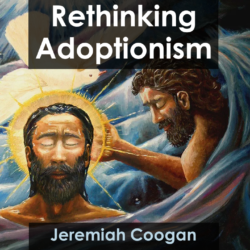
How do you know the difference between what’s right and wrong? Do morals have an absolute source or does society determine them? In this talk, Kenny Willenburg explains the classic moral argument as well as how we can use this approach to “turn the tables” when people object to Christianity on moral grounds. I’ve also left in a fair amount of discussion following Willenburg’s presentation.
—— Notes ——
- if morals are objective then they are obligatory
- there must be a source for morals
- the most reasonable source is God
if there is no God, there couldn’t be objective morality
Richard Dawkins (God Delusion)
– God of the OT is jealous, petty, control freak, etc.
three problems
- saying God is immoral doesn’t disprove God’s existence
○ Hitler didn’t exist b/c the things he did were too bad - saying the creator is evil is arrogant
○ if there is a creator then he would have the right to interact w/ creation however he wanted - can’t claim God is immoral b/c w/o God’s existence there’s no standard by which to judge God
relativism is taught in our culture as the only absolute truth
- tolerant of anything but intolerance
- can’t push religious ideas on others, but that is pushing secularism on us
- no one is allowed to criticize anyone’s actions
sources for morality
- morality can’t be individually determined
- morality can’t be socially constructed
○ actually, our culture got its ideas from a Judea-Christian background
○ thus, this proves what the non-theist is trying to disprove - morality comes from nature (i.e. Darwinian evolution)
○ how is self-sacrificial care of the weak/unproductive helpful to the herd?
○ morals are simply evolutionary hold overs
○ not clear how this is obligatory
—— Links ——
- Check out the other talks in this Apologetics Conference
- For more, here’s an entire Apologetics Class
- Intro music: Jazzy Frenchy by bensound.com. Licensed under Creative Commons: By Attribution 3.0 License.






